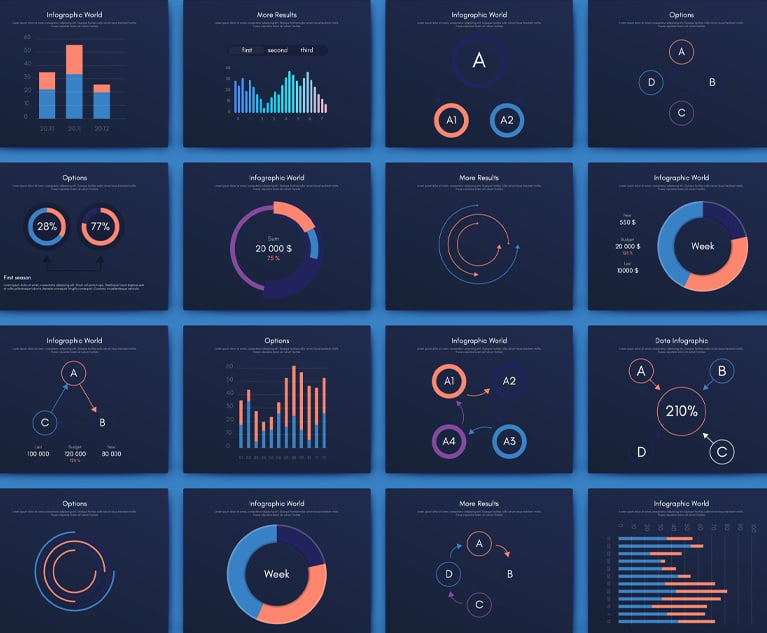Data Snapshot: A Look at the Falling Bar Passage Rates in Five U.S. States
From Florida, to New York, to California, the bar exam passage rate has been sliding across the country. A new Law.com series digs into why -- and what it means.
April 22, 2019 at 05:00 AM
2 minute read
The fact that bar exam pass rates have been in decline is not news to the legal industry. But the scale and reach of the trend—as well as its impact on graduating law students and the profession overall—is more challenging to measure.
In a new series that continues this week, legal education reporter Karen Sloan shines a light on the root causes of the falling exam passage rate, and what it means. To help paint a picture of what has been going on across the U.S., Law.com gathered exam passage rates for five states that are home to major legal markets: California, New York, Pennsylvania, Florida, and Texas.
All of the states have seen significant drops in the passage rate for first-time takers of the July exam (typically when new law school graduates take the bar) over the past decade. Looking back to 2005, bar rates were actually on the rise in the years prior to the Great Recession and peaked around 2008-2009 for these fives states.
Since then, they have slid across the board, although some of these states—like Texas and Pennsylvania—have seen a tentative recovery. Nowhere has the slide been as pronounced as in California, where the passage rate for first-time takers of the July exam has dropped steadily from 75 percent in 2008 to 54 percent in 2018.
As Karen writes, there are a multitude of factors contributing to the trend, “but it's clear that waning demand for a law degree has played a key role.” For a deeper look at the numbers and what they mean, read the latest installment of the Big Fail series on Law.com.
The Big Fail
This content has been archived. It is available through our partners, LexisNexis® and Bloomberg Law.
To view this content, please continue to their sites.
Not a Lexis Subscriber?
Subscribe Now
Not a Bloomberg Law Subscriber?
Subscribe Now
NOT FOR REPRINT
© 2025 ALM Global, LLC, All Rights Reserved. Request academic re-use from www.copyright.com. All other uses, submit a request to [email protected]. For more information visit Asset & Logo Licensing.
You Might Like
View All
A Law Firm Divided: How Generational Differences Are Fracturing Firms

The Week in Data Aug. 6: A Look at Legal Industry Trends By the Numbers

The Week in Data July 31: A Look at Legal Industry Trends By the Numbers

Trending Stories
- 1Departing Attorneys Sue Their Former Law Firm
- 2Pa. High Court: Concrete Proof Not Needed to Weigh Grounds for Preliminary Injunction Order
- 3'Something Else Is Coming': DOGE Established, but With Limited Scope
- 4Polsinelli Picks Up Corporate Health Care Partner From Greenberg Traurig in LA
- 5Kirkland Lands in Phila., but Rate Pressure May Limit the High-Flying Firm's Growth Prospects
Who Got The Work
J. Brugh Lower of Gibbons has entered an appearance for industrial equipment supplier Devco Corporation in a pending trademark infringement lawsuit. The suit, accusing the defendant of selling knock-off Graco products, was filed Dec. 18 in New Jersey District Court by Rivkin Radler on behalf of Graco Inc. and Graco Minnesota. The case, assigned to U.S. District Judge Zahid N. Quraishi, is 3:24-cv-11294, Graco Inc. et al v. Devco Corporation.
Who Got The Work
Rebecca Maller-Stein and Kent A. Yalowitz of Arnold & Porter Kaye Scholer have entered their appearances for Hanaco Venture Capital and its executives, Lior Prosor and David Frankel, in a pending securities lawsuit. The action, filed on Dec. 24 in New York Southern District Court by Zell, Aron & Co. on behalf of Goldeneye Advisors, accuses the defendants of negligently and fraudulently managing the plaintiff's $1 million investment. The case, assigned to U.S. District Judge Vernon S. Broderick, is 1:24-cv-09918, Goldeneye Advisors, LLC v. Hanaco Venture Capital, Ltd. et al.
Who Got The Work
Attorneys from A&O Shearman has stepped in as defense counsel for Toronto-Dominion Bank and other defendants in a pending securities class action. The suit, filed Dec. 11 in New York Southern District Court by Bleichmar Fonti & Auld, accuses the defendants of concealing the bank's 'pervasive' deficiencies in regards to its compliance with the Bank Secrecy Act and the quality of its anti-money laundering controls. The case, assigned to U.S. District Judge Arun Subramanian, is 1:24-cv-09445, Gonzalez v. The Toronto-Dominion Bank et al.
Who Got The Work
Crown Castle International, a Pennsylvania company providing shared communications infrastructure, has turned to Luke D. Wolf of Gordon Rees Scully Mansukhani to fend off a pending breach-of-contract lawsuit. The court action, filed Nov. 25 in Michigan Eastern District Court by Hooper Hathaway PC on behalf of The Town Residences LLC, accuses Crown Castle of failing to transfer approximately $30,000 in utility payments from T-Mobile in breach of a roof-top lease and assignment agreement. The case, assigned to U.S. District Judge Susan K. Declercq, is 2:24-cv-13131, The Town Residences LLC v. T-Mobile US, Inc. et al.
Who Got The Work
Wilfred P. Coronato and Daniel M. Schwartz of McCarter & English have stepped in as defense counsel to Electrolux Home Products Inc. in a pending product liability lawsuit. The court action, filed Nov. 26 in New York Eastern District Court by Poulos Lopiccolo PC and Nagel Rice LLP on behalf of David Stern, alleges that the defendant's refrigerators’ drawers and shelving repeatedly break and fall apart within months after purchase. The case, assigned to U.S. District Judge Joan M. Azrack, is 2:24-cv-08204, Stern v. Electrolux Home Products, Inc.
Featured Firms
Law Offices of Gary Martin Hays & Associates, P.C.
(470) 294-1674
Law Offices of Mark E. Salomone
(857) 444-6468
Smith & Hassler
(713) 739-1250








